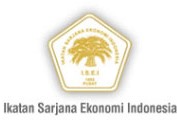Simultaneous Analysis: The Effect of Electricity Consumption on Human Development Index in ASEAN 5
(1) Universitas Sebelas Maret
(2) Universitas Sebelas Maret
(3) Universitas PGRI Yogyakarta
Abstract
A high per capita electricity consumption in developed countries is also correlated with high numbers on the human development index. Several studies show the relationship between the level of electricity consumption on economic growth and vice versa. This study aims to explore the relationship between electricity consumption, Human Development Index (HDI), and inflation to Gross Domestic Product (GDP) per Capita in ASEAN 5 countries. Using the simultaneous equation for the period 2012 to 2010 with the indirect least squares (ILS) analysis technique, it is found that electrical energy consumption has a positive effect on GDP per capita but HDI (Human Development Index) does not significantly affect GDP per Capita in ASEAN 5 countries. Meanwhile, the obtained inflation variable does not affect GDP per Capita. Then, we develop the second model and third model to test the impact on GDP per capita, electricity per capita, and HDI. The second model HDI as the dependent variable is influenced by the level of electricity consumption per capita and GDP per capita. This result proves that HDI is not influenced significantly by GDP per capita but is influenced by electricity consumption per capita. The third model shows empirical evidence that GDP per capita and HDI affect the level of electricity consumption. The policy implication is that electricity consumption will increase along with the increase in economic growth. The government must be able to increase supply to fulfill the rising electricity demand.
Keywords
Full Text:
PDFReferences
Adaramola, O. & Dada, O. (2020). Impact Of Inflation On Economic Growth: Evidence From Nigeria. Investment Management And Financial Innovations, 17(2), 1–13. 10.21511/IMFI.17(2).2020.01.
Asmy, M. et al. (2019). Electricity Consumption And Economic Growth : A Revisit Study Of Their Causality In Malaysia. Eticonomy, 18(1), 1–12.
Azad, A. et al. (2014). Energy Scenario: Production, Consumption And Prospect Of Renewable Energy In Australia. Journal Of Power And Energy Engineering, 2(4), 19–25. 10.4236/JPEE.2014.24004.
Bah, M. & Azam, M. (2017). Investigating The Relationship Between Electricity Consumption And Economic Growth: Evidence From South Africa. Renewable And Sustainable Energy Reviews, 80, 531–537. 10.1016/J.RSER.2017.05.251.
Bouznit, M. & Pablo-Romero, M. (2016). CO2 Emission And Economic Growth In Algeria. Energy Policy, Elsevier, 96(C), 93-104. 10.1016/j.enpol.2016.05.036.
Chapel, C. (2022). Impact Of Official Development Assistance Projects For Renewable Energy On Electrification In Sub-Saharan Africa. World Development, Elsevier Ltd, 152. 10.1016/j.worlddev.2021.105784.
Chouaïbi, N. & Abdessalem, T. (2011). Causality Between Electricity Consumption And Economic Growth In Tunisia: Policy Implications. International Journal Of Economic Policy In Emerging Economies, 4(3), 211–226. 10.1504/IJEPEE.2011.040915.
Deutch, J. (2017). Decoupling Economic Growth And Carbon Emissions. Joule, Elsevier Inc., 1(1), 3–5. 10.1016/j.joule.2017.08.011.
Ghosh, J. (2015). Growth, Industrialisation And Inequality In India. Journal Of The Asia Pacific Economy. 10.1080/13547860.2014.974316.
Heidari, H., Turan K., & Saeidpour, L. (2015) Economic Growth, CO2 Emissions, And Energy Consumption In The Five ASEAN Countries. International Journal Of Electrical Power And Energy Systems, Elsevier Ltd, 64, 785–791. 10.1016/J.IJEPES.2014.07.081.
Jamil, F. & Ahmad, E. (2010). The Relationship Between Electricity Consumption, Electricity Prices And GDP In Pakistan. Energy Policy, Elsevier Ltd, 38(10), 6016–6025. 10.1016/J.ENPOL.2010.05.057.
Ben-Jebli, M., Ben-Youssef, S., & Ozturk, I. (2015). The Role Of Renewable Energy Consumption And Trade: Environmental Kuznets Curve Analysis For Sub-Saharan Africa Countries. African Development Review, 27(3), 288–300. 10.1111/1467-8268.12147.
Kanagawa, M. & Nakata, T. (2008) Assessment Of Access To Electricity And The Socio-Economic Impacts In Rural Areas Of Developing Countries. Energy Policy, 36(6), 2016–2029. 10.1016/j.enpol.2008.01.041.
Lin, S., Zhao, D., & Marinova, D. (2009). Analysis Of The Environmental Impact Of China Based On STIRPAT Model. Environmental Impact Assessment Review, 29(6), 341–347. 10.1016/J.EIAR.2009.01.009.
Makholm, J. (2022). The Renewable Energy Supply Chain Problem: A New Geography Of Power Supply And New Species Of Electricity Transmission. The Electricity Journal, 107079. 10.1016/J.TEJ.2022.107079.
Mcneil, M., Karali, N., & Letschert, V. (2019). Energy For Sustainable Development Forecasting Indonesia’s Electricity Load Through 2030 And Peak Demand Reductions From Appliance And Lighting Ef Fi Ciency. Energy For Sustainable Development, The Authors, 49, 65–77. 10.1016/j.esd.2019.01.001.
Nasution, M., Ambarita, H., & Siregar, I. (2018). Social And Technical Barriers That Affect The Growth Of Small-Scale Hydropower Independent Power Producers In Indonesia. IOP. 10.1088/1757-899X/420/1/012041.
Niu, S., Jia, Y., Wang, W., & He, R. (2013). Electricity Consumption And Human Development Level: A Comparative Analysis Based On Panel Data For 50 Countries. International Journal Of Electrical Power And Energy Systems, 53(1), 338–347. 10.1016/j.ijepes.2013.05.024.
Niu, S., Jia, Y., Ye, L., Dai, R., & Li, N. (2016). Does Electricity Consumption Improve Residential Living Status In Less Developed Regions? An Empirical Analysis Using The Quantile Regression Approach. Energy, Elsevier Ltd, 95, 550–560. 10.1016/j.energy.2015.12.029.
Odhiambo, N. (2009). Electricity Consumption And Economic Growth In South Africa: A Trivariate Causality Test. Energy Economics, 31(5), 635–640. 10.1016/j.eneco.2009.01.005.
Ong, S. & Sek, S. (2013). Interactions Between Economic Growth And Environmental Quality: Panel And Non-Panel Analyses. Applied Mathematical Sciences, 7(13–16), 687–700.
Ouedraogo, N. (2013a). Energy Consumption And Economic Growth: Evidence From The Economic Community Of West African States (ECOWAS). Energy Economics, Elsevier B.V., 36, 637–647. 10.1016/j.eneco.2012.11.011.
Ouedraogo, N. (2013b). Energy Consumption And Human Development: Evidence From A Panel Cointegration And Error Correction Model. Energy, Pergamon, 63, 28–41. 10.1016/J.ENERGY.2013.09.067.
Owusu, P., & Asumadu-Sarkodie, S. (2016). A Review Of Renewable Energy Sources, Sustainability Issues And Climate Change Mitigation. Cogent Engineering, Cogent OA, 3(1). 10.1080/23311916.2016.1167990.
Pardo, M. (2015). Energy And Sustainable Development In Cities: A Case Study Of Bogotá. Energy. 10.1016/j.energy.2015.02.003.
Pata, U. (2018). Renewable Energy Consumption, Urbanization, Financial Development, Income And CO2
Emissions In Turkey: Testing EKC Hypothesis With Structural Breaks. Journal Of Cleaner Production, Elsevier Ltd, 187, 770–779. 10.1016/J.JCLEPRO.2018.03.236.
Rahman, R., Raja, M., & Ryan, C. (2020). The Impact Of Human Development On Economic Growth: A Panel Data Approach. SSRN Electronic Journal. 10.2139/ssrn.3526909.
Saepudin, T., & Acuviarta, A. (2016). The Community Empowerment Program To Reduction Poverty In Banjar. Trikonomika, 15(1), 8-13. 10.23969/trikonomika.v15i1.390.
Samu, R., Bekun, F., & Fahrioglu, M. (2019). Electricity Consumption And Economic Growth Nexus In Zimbabwe Revisited: Fresh Evidence From Maki Cointegration. International Journey Of Green Energy, 16(32), 1-11. https://doi.org/10.1080/15435075.2019.1598417.
Sanchez-Loor, D., & Zambrano-Monserrate, M. (2015a). Causality Analysis Between Electricity Consumption, Real Gross Domestic Product, Foreign Direct Investment, Human Development And Remittances In Colombia, Ecuador And Mexico. International Journal Of Energy Economics And Policy, 5(3), 746–753. http:www.econjournals.com.
Sanchez-Loor, D., & Zambrano-Monserrate, M. (2015b). Causality Analysis Between Electricity Consumption, Real Gross Domestic Product, Foreign Direct Investment, Human Development And Remittances In Colombia, Ecuador And Mexico. International Journal Of Energy Economics And Policy, 5(3), 746–753. http:www.econjournals.com.
Sarkodie, S., & Adams, S. (2018). Renewable Energy, Nuclear Energy, And Environmental Pollution: Accounting For Political Institutional Quality In South Africa. Science Of The Total Environment, Elsevier B.V., 643, 1590–1601. 10.1016/j.scitotenv.2018.06.320.
Sarwar, S., Chen, W., & Waheed, R. (2017). Electricity Consumption, Oil Price And Economic Growth: Global Perspective. Renewable And Sustainable Energy Reviews Elsevier, 76(C), 9–18. 10.1016/J.RSER.2017.03.063.
Soytas, U., Sari, R., & Ewing, B. (2007). Energy Consumption, Income, And Carbon Emissions In The United States. Ecological Economics, 62(3–4), 482–489. 10.1016/J.ECOLECON.2006.07.009.
Thaker, et al. (2019). Electricity Consumption and Economic Growth : A Revisit Study of Their Causality in Malaysia. Eticonomy, 18(1), 1–12. 10.1016/j.energy.2012.01.048.
Wang, Z., Zhang, B., & Wang, B. (2018). Renewable Energy Consumption, Economic Growth And Human Development Index In Pakistan: Evidence Form Simultaneous Equation Model. Journal Of Cleaner Production, Elsevier Ltd, 184, 1081–1090. https://www.sciencedirect.com/science/article/pii/s0959652618305924.
Yustisia, D., & Sugiyanto, C. (2014). Empirical Analysis Of Environmental Kuznets Curve (EKC) Regarding Energy Orientation [Analisis Empiris Environmental Kuznets Curve (EKC) Terkait Orientasi Energi]. Journal Of Economics & Development Studies [Jurnal Ekonomi & Studi Pembangunan], 15(2), 161–170. 10.18196/jesp.15.2.1232.
Zvoleff, A., Selin, A., Tim, W., & Modi, V. (2009). The Impact Of Geography On Energy Infrastructure Costs. Energy Policy, Elsevier, 37(10), 4066–4078. 10.1016/J.ENPOL.2009.05.006.
Refbacks
- There are currently no refbacks.

This work is licensed under a Creative Commons Attribution 4.0 International License.







